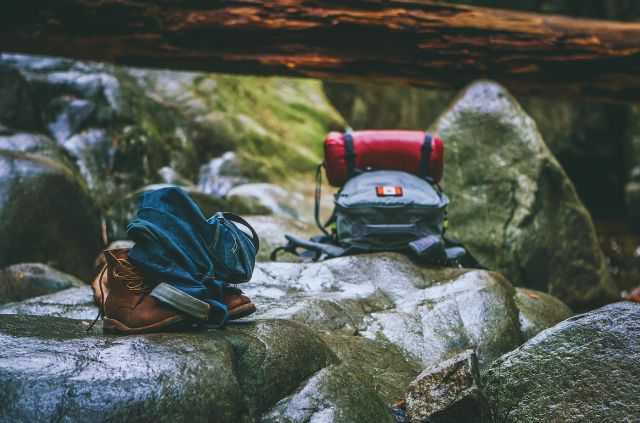Hiking is one of the best ways to get a good workout while staying connected with nature and is shown to increase serotonin levels in the brain while decreasing symptoms of stress and anxiety. Whether you’re hiking alone or spending a day on the trail with your friends and family, hiking is one of the best things that you can do for both your physical and mental health.
To beginners who are unfamiliar with the experience of hiking, the sport might seem intimidating. The truth is, hiking can be quite challenging, especially if you are on a more difficult trail. It is important that those who are new to hiking pace themselves correctly and only travel on beginner-friendly trails, as well as ensure that they have invested in the appropriate equipment.
How to Plan and Prepare for your Hiking Trip
If you’re interested in hiking, here are some tips and tricks for beginners.
1. Pack Appropriately

When determining what to pack, think about the length of the hike you are taking and the amount of time you will be gone. If you are going on a longer or more intense hike, you will be required to bring more gear. For a shorter hike, be sure to bring the appropriate amount of food and water – bring a little more than you think you need, even if you aren’t planning on being gone long. It’s better to be safe than sorry. Also, bring the navigation device of your choice, preferably a paper map or tech device that doesn’t require strong service. These are among the top essentials to bring while hiking Plus, pack rain gear and a light jacket if you are hiking in the colder months, as well as safety gear like band-aids and antibiotic ointment.
2. Wear Comfortable Clothing

To stay comfortable during a hike and to avoid injuries, wear clothing and shoes that fit properly, be sure you’re wearing clothing and shoes that fit properly and are appropriate for the conditions of a hike. Make sure you wear weather-appropriate clothing that will resist moisture such as sweat. Also, be sure to wear shoes that will support your feet throughout a long hike, while protecting your feet and toes from outdoor elements.
Following are the common types of clothing people generally choose to wear on hiking.

- Comfortable Tops: Sun hoodies, jackets, short-sleeved t-shirts, warm base layers, etc.
- Bottoms: Full-length pants, shorts, rain pants, etc.
- Travel accessories for hiking: Bandana, sun hats, sunscreens, sunglasses, etc.
3. Stretch!
Hiking promotes physical activity and makes the body active. But, it can put a considerable amount of stress on your body that you might not feel until later.
To avoid injury or discomfort during or after a hike, do a good amount of stretching before and after a hike, focusing especially on your leg and back muscles.
4. Pick the Suitable Trail
If you are a beginner in hiking, it is the best option to pick a hiking trail that is easy to climb. Ensure that the weather is pleasant and that there is no chance of snowfall, rain, or extreme temperatures. Plus, always know the estimated time, distance, and elevation of the trail to get an idea of how long it will take you to reach the destination.
5. Pick the Right Footwear
Since hiking is all about walking and climbing, you must have sturdy and durable shoes. They should be comfortable, breathable, and easy to wear. There are different types of footwear for different routes.
For example, trail running shoes are best for short and easy hikes. On the other hand, hiking sandals are best for trails with water streams or extremely hot weather. Moreover, you have to choose the right pair of socks to protect your feet from dust, dirt, pebbles, and insects.
Look for these qualities in footwear before selecting it for hiking.
- It should be stable and durable.
- It should be waterproof and breathable to keep the feet cool on a summer hiking trip.
- The design must be comfortable and lightweight.
- The boot must have enough cushioning to support your ankle.
- It should be according to the size and shape of your feet to ensure a good fit.
Conclusion:
Hiking is one of the best things you can do for your body and mind and is a relatively beginner-friendly sport. Even if you are a beginner, you can utilize these tips and tricks to fulfill your desire to hike. Make sure to select clothing and accessories that are suitable for your route because there are different attires and accessories for different trails.
Read Also: 9 Best Hikes In The World for Trekking Enthusiasts



